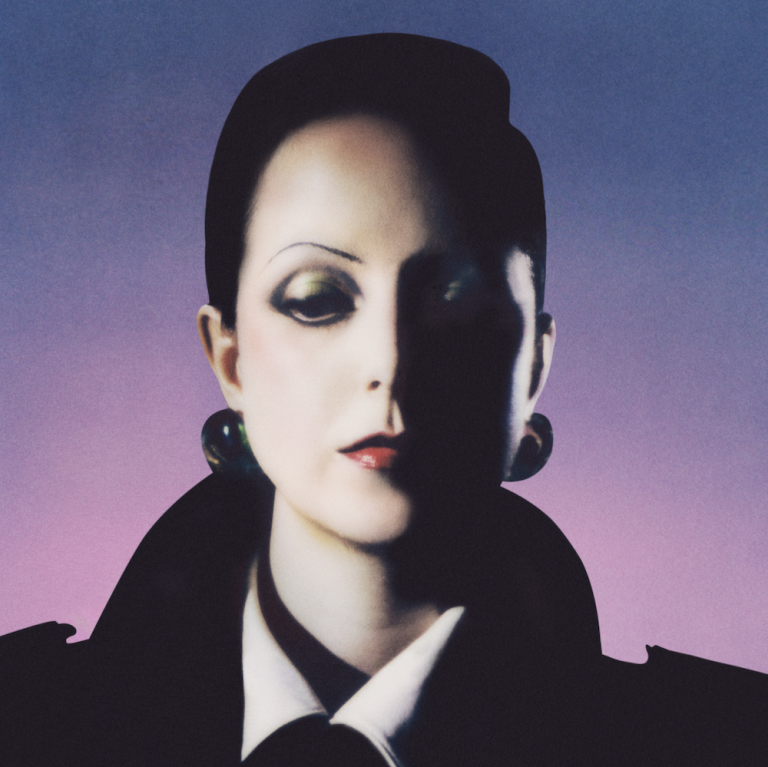Fabiana Palladino risked becoming a footnote or an urban legend. Long in the sphere of Jai Paul, the luxuriously named singer/multi-instrumentalist dropped a handful of pre-pandemic R&B singles and promptly dematerialised – resurfacing only as a session musician in the Jai-verse. Her solo launch was inexplicably postponed, awkwardly paused like a comedian who’s failed to prepare more than their first line. Her self-titled debut album’s writing and recording are described as having been done in secret, which should sound like a boast but somehow doesn’t.
Palladino diagnoses the trickle as a symptom of perfectionism. If as a session musician she had the bare minimum of creative control, her clandestine solo guise offers omnipotence. Pop listeners tend to prefer spontaneous over painstaking and perfectionism conjures images of OCD, tunnelvision and self-indulgence. Songwriters and producers might agonise to find the touch that turns meh into magical, but in this age turnaround time is equally key. Taylor Swift has shown that you can always re-record later; TikTok has shown that there is not one media cycle, but hundreds of varying sizes.
In the context of her self-titled debut, however, perfectionism not just binds Pallodino’s music but also mirrors her lovelife. Her album is a canvas on which she projects rebuttals and conversations that have been rehearsed ad nauseam, yet she edits her thoughts compulsively. Every assumption and decision could use a little more discussion. Palladino’s drive toward closure struggles with ambivalence.
While in some ways Fabiana Palladino is a teased-and-shoulder-padded sister to Jamila Woods’ Water Made Us – at least in regards to its patience and dedication to self-discovery – its defining characteristic is the many questions that surface and how each one spiderwebs like a crack in the windshield: “Do I want you?”; “Can you look in the mirror?”; “Ever wonder why I lied?”; “What do I do to make you really care?”
Opener “Closer” rides in like Seals & Crofts’ “Sweet Green Fields” (aka Busta Rhymes’ “Put Your Hands Where My Eyes Can See”), a sultry strut that finds Palladino in a husky, Sadé mode: “I don’t need to talk about/what everyone can see”. The relationship in question is like being forehead-to-forehead with someone: never closer, never before so unsighted. Though album’s influences go as far back as Marvin Gaye’s “I Want You” (“Deeper”), the overall tone is suitably compressed and claustrophobic. The taut paranoia and confusion that belied Prince & The Revolution’s 1999 and Purple Rain forms a touchstone, modernised when the tenor shifts to Rhye.
Second track “Can You Look In The Mirror” starts the album unofficially, not just because of its interrogatory title but its post-funk/pre-house soul sets the dance fully in motion. “I Can’t Dream Anymore” immediately slows the tempo, but its power chords and power-ballad iconography builds like the tide. She follows with “Give Me A Sign”, a mixture of Roxette and 80s teen idols like Debbie Gibson, but fully immersed in the ruling confusion: “Didn’t try and change your mind / ‘Cause I couldn’t decide”.
The album centrepiece is the fateful “Stay With Me Through The Night”, which is a disco-era analogue to Franz Ferdinand’s “Take Me Out” with an impossibly on-point accordion hook. Haunted by loneliness, she begs to “bring back the memory of our love” but not the love itself. The idealisation of the past brings the retro musical references into full view: off the footer and into the heart of the story.

